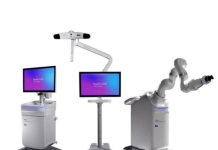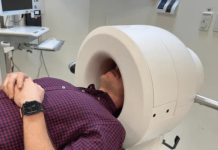Simpson Interventions announced today that investigators completed the first cases in a trial of its Acolyte catheter system.
The Acolyte study, a pivotal investigational device exemption (IDE) trial, assesses the safety and effectiveness of the image-guided crossing and re-entry catheter system. It treats coronary chronic total occlusions (CTOs) with persistent symptoms following medical therapy.
Campbell, California-based Simpson Interventions designed its catheter system to overcome the current challenges of CTOs. The company says these occur when plaque buildup completely blocks a coronary artery. This poses a challenge for interventional cardiologists who lack the effective tools to reliably cross these lesions with current options.
Related: Fractyl reports positive 2-year Revita results, prices $20m offering
Often, if interventional wire fails to cross a CTO, they can’t perform minimally invasive revascularization options like angioplasty and stent placement. Because of this, many CTO patients face invasive coronary artery bypass surgery or receive just medical therapy alone.
Acolyte enables cardiologists to clearly visualize the CTO in real-time and precisely position a guidewire, all with the same device.
“We are excited to have enrolled the first patient in this pivotal trial for our novel technology,” said Dr. Joseph Knight, CEO of Simpson Interventions. “The goal for all interventional cardiologists is to treat every patient with the safest and most predictable and minimally invasive approach. We believe that the Acolyte System will provide the medical community with a valuable tool to conquer CTOs, which will, most importantly, be a win for cardiologists, hospitals, payers, and most of all, the patients.”




